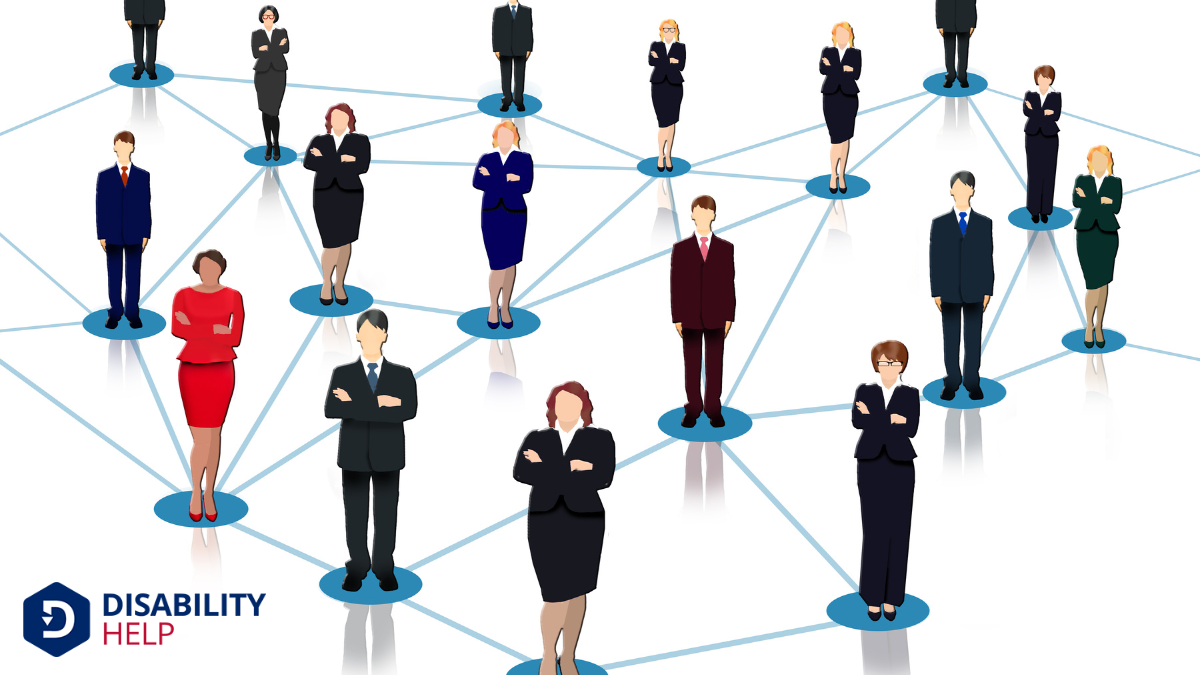You're probably wondering if there are local or community-based scholarships available for students with disabilities. The good news is that many communities offer such opportunities, often through local disability organizations, community centers, and schools. These scholarships can provide essential financial support, but finding them might require a bit of exploration and networking. Curious about how to uncover these hidden gems and what steps to take next?
Key Takeaways
- Contact local disability organizations for information on community-based scholarship opportunities.
- Visit community centers and libraries for bulletin board postings about local disability scholarships.
- School counselors and college advisors can provide insights on local disability scholarships.
- Join disability advocacyEfforts and services aimed at protecting and promoting the rights and interests of individuals with ... groups and attend community events for potential scholarship leads.
- Network with students and families facing similar challenges to discover local scholarship opportunities.
Understanding the Need for Disability Scholarships
In today's world, countless students with disabilities face unique challenges when pursuing higher education, making the availability of disability scholarships essential.
You might wonder why these scholarships are so important. They not only alleviate financial burdens but also empower students to overcome barriers that might otherwise hinder their academic success.
You see, accessible education isn't just about ramps or adaptive technology—it's about ensuring that financial obstacles don't limit opportunities.
By supporting disability scholarships, you’re acknowledging the diverse needs of these students and fostering an inclusive environment.
It’s significant to recognize that scholarships offer more than just monetary aid; they provide validation and encouragement.
When you support such initiatives, you’re promoting a fair chance for everyone to succeed in their educational journey.
Identifying Local and Community-Based Opportunities

Although it might seem intimidating at first, identifying local and community-based scholarship opportunities can be a rewarding endeavor for students with disabilities.
Start by reaching out to local disability organizations, as they often have information about scholarships specifically tailored for your needs. You can also visit community centers and libraries, where bulletin boards and staff might've details on available scholarships. Don’t hesitate to ask school counselors or college advisors, as they're usually informed about local opportunities.
Networking with other students and families facing similar challenges can also lead to discovering hidden gems. Attend community events, join disability advocacyThe act of arguing in favor of, supporting, or defending the rights and interests of individuals or ... groups, or participate in online forums to connect with people who might share valuable leads.
The Application Process: Tips and Requirements
Now that you've uncovered local scholarship opportunities, it's time to navigate the application process effectively. Start by carefully reading all the requirements. Each scholarship might ask for different documents, like proof of disability, transcripts, or personal essays.
Make a checklist to guarantee you don't miss anything. When writing essays, focus on authenticity. Share your story and how the scholarship will impact your life. Proofread everything before submitting, and ask someone you trust to review your application. They might catch errors you've overlooked.
Pay attention to deadlines. Mark them on your calendar and aim to submit early, avoiding any last-minute issues.
Finally, keep copies of everything you submit. This helps if any follow-up is needed and can serve as a reference for future applications.
Stories of Success: Impactful Scholarship Recipients
As you explore the stories of those who've benefitted from local disability scholarships, you'll find a tapestry of resilienceThe ability of individuals with disabilities to cope with and adapt to challenges and adversity. and achievement. Each recipient’s journey showcases the transformative power of financial support tailored to their unique needs.
You'll hear about individuals who’ve overcome barriers, like Alex, who pursued a degree in computer science, and Maya, who launched a successful art career. These scholarships offer more than just financial aid; they provide a sense of validation and encouragement.
Recipients often express how these opportunities have changed their lives. They’ve not only excelled in their fields but also inspired others in their communities.
Building a Network: Connecting With Community Organizations

The inspiring stories of scholarship recipients highlight the importance of building connections with community organizations. You should reach out to local groups that support individuals with disabilities, like advocacy organizations or community centers.
By engaging with these groups, you’ll uncover scholarship opportunities and gain valuable guidance. Attend local events, workshops, or meetings, and don’t hesitate to introduce yourself and share your goals.
Networking isn’t just about finding scholarships; it’s about creating relationships that provide support and encouragement. These organizations can connect you with mentors who’ve navigated similar paths and offer insights that go beyond financial aid.
Leveraging Online Resources for Scholarship Discovery
Although building connections with local organizations is essential, don’t overlook the power of online resources in your scholarship search. Start by exploring dedicated scholarship websites like Fastweb, Scholarships.com, or Disability.gov. These platforms allow you to filter opportunities by specific criteria, such as location, disability type, or field of study.
Utilize social media groups and forums focused on disability advocacy and education. These communities often share lesser-known scholarships and provide valuable advice.
Don’t forget to check the websites of universities and colleges in your area. Many institutions list scholarships for students with disabilities.
Finally, set up Google Alerts with keywords like "local disability scholarships." This proactive approach guarantees you’re among the first to know about new opportunities.
Stay organized by tracking deadlines and requirements.
Conclusion
You can discover numerous local and community-based disability scholarships by staying proactive and connected. Don’t hesitate to reach out to local disability organizations, school counselors, and community centers for guidance. Attend community events and network with others who share similar goals. By leveraging these resources and actively seeking opportunities, you’ll create a supportive environment for your education journey. Remember, persistence and community connections are key to uncovering valuable scholarship opportunities.






